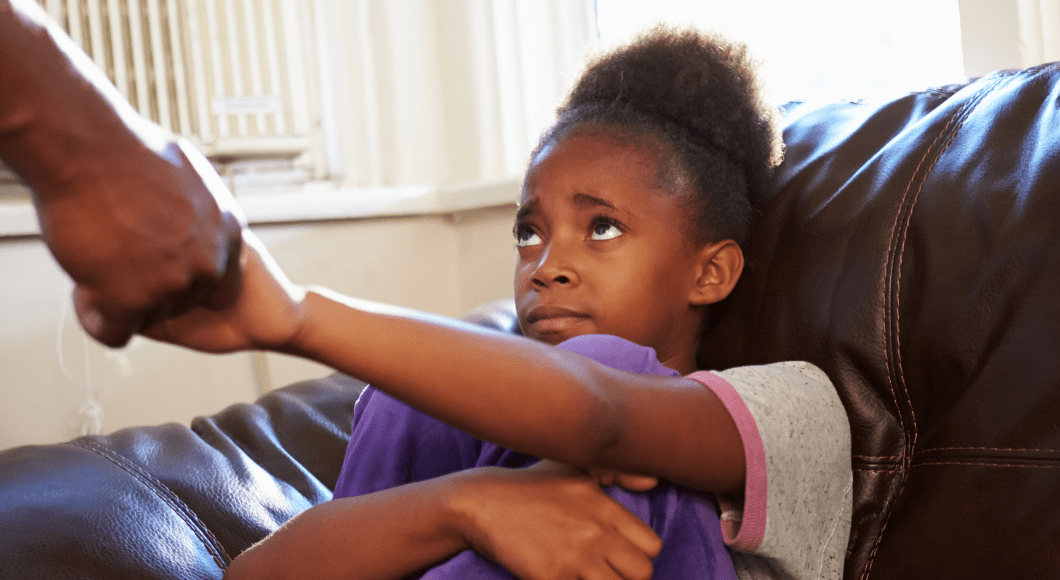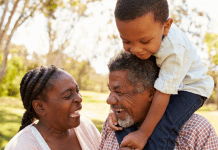Leaving the adoption seminar, I was filled with hope. This was it. This was the way we were going to become a family. This was the way I am going to become a mother.
I did not anticipate becoming a parent would trigger the childhood trauma I thought I had worked through and overcome. That the agency would psychoanalyze me to determine if I was fit to be a mother. I didn’t know that, as I stared at my newborn daughter, I would be filled with rage of the innocence that was taken from me. I didn’t know that becoming a mother would fill me with so much doubt because of the trauma I had endured. Could I do this?
Effects of Childhood Trauma on Parents
Childhood trauma has long-term impacts on your psychological, physical, behavioral, and social health. Parenting a newborn is rigorous on your mind, body, and spirit and depletes you of all coping mechanisms.
There isn’t a single aspect of parenting that is particularly triggering, but as you find yourself overwhelmed and exhausted, panic sets in as we are pushed to our absolute limits. It often felt impossible to push through.
 I found myself triggered at the most unsuspecting times. The first diaper change outside of the hospital, for example. The unexpected trauma response watching my spouse interact in a completely appropriate way actually took my breath away. As a child, I had needs that weren’t met. I was projecting my fears and anxiety unfairly onto those around me.
I found myself triggered at the most unsuspecting times. The first diaper change outside of the hospital, for example. The unexpected trauma response watching my spouse interact in a completely appropriate way actually took my breath away. As a child, I had needs that weren’t met. I was projecting my fears and anxiety unfairly onto those around me.
This strong emotional response continues consistently day to day.
>> RELATED READ :: Adoption Myth Busters :: Momfessions Podcast :: Episode 73 <<
Unexpected Triggers
In the early days of motherhood, I often found myself in a state of panic. Observing my child discover their body in the bath (this was a big one). The constant state of nakedness around the house (even still as they get older). Accidentally breaking cherished items. Not liking the food that is served but still being hungry. The tantrums at home and in public.
The first day of daycare and leaving them with a stranger. First day of kindergarten. Their first play date without me present. I know many parents struggle with this, but the amount of fear and concern for their safety, knowing I can’t protect them while they are with someone else. Hoping they will not be taken advantage of or hurt while I am away.
All of these things triggered intense emotional and physical responses and flashbacks of times when I was not safe in the same situation. A fear rose inside of me that if I didn’t respond in the right way, I was going to inflict the same trauma onto my child. Often, the concerns were unreasonable and irrational, but that was the trauma creeping in.

Understanding Your Trauma
Understanding your trauma, the warning signs, and your triggers are so important.
The most common causes of trauma include:
- Accidents
- Bullying/cyberbullying
- Chaos or dysfunction in the house (such as domestic violence, parent with a mental illness, substance abuse, or incarcerated)
- Death of a loved one
- Emotional abuse or neglect
- Physical abuse or neglect
- Separation from a parent or caregiver
- Sexual abuse
- Stress caused by poverty
- Sudden and/or serious medical condition
- Violence (at home, at school, or in the surrounding community)
- War/terrorism
Emotional responses to traumatic remembering are:
- Anxiety
- Despair
- Irritability
- Panic
- Rage
- Shame
Healing Generational Trauma
How can you overcome your trauma to become the best version of yourself and the best parent you can be? There is a range of techniques and resources available to us today, that if available when we were children, maybe we wouldn’t be dealing with the complexities of our trauma this late into adulthood.
- Mindful Parenting: This is a practice of being self-aware and managing your own emotions and behaviors while teaching your children to manager theirs.
- Trauma Informed Parenting: This is a practice of being aware of the effects traumatic events effect a child’s development and growth.
- Seek Professional Help: There are numerous resources available. Psychology Today is a phenomenal resource that allows you to break down by insurance, cash pay, location, tele-visits, gender, area of expertise, etc. Don’t have insurance? Care is available through MHMR of Tarrant County.
I know I am not a perfect parent, but I also know I do my best every day to do better for my child. I make a conscious effort to talk things through instead of yell. I’ve realized that just because kids do weird things with their bodies, they aren’t being provocative or sexual. I recognize that just because I did not have a safe space to grow, doesn’t mean I can’t provide a safe space for them. I can break the cycle of trauma.
>> LISTEN :: How to Heal Emotional Wounds to Be the Moms We Want to Be <<
My promise is to check my own triggers and emotional responses to my child’s actions. I will apologize if I react in an inappropriate way. I make sure my child feels loved and accepted and know that I am always a safe space.
Unfortunately, we can’t undo the traumatic events that have happened to us. But, we can take each day, each minute, even each second, to reflect on ourselves, to hug our inner child, and show up to be the best parents we can be.













